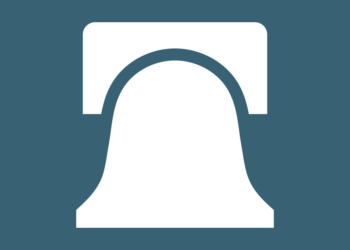The federal government may be shut down, but Congress continues to cause chaos. As the 2025 legislative session comes to an end, lawmakers are taking advantage of the lull to attach their pet projects to any bill that might pass—most recently, a kids’ online safety package pending approval once the government reopens.
As I have written before, two Republican members, Representatives Kat Cammack (R-FL) and John James (R-MI), are both advocating for app store proposals supported by competing coalitions of major tech developers. Ironically, although their bills aim to regulate in opposite directions, both would expose users’ devices by removing the operating system’s ability to enable built-in security features—making users less safe online, reducing parental control, and making digital safety for children more complicated rather than easier.

Rep. Cammack’s App Store Freedom Act borrows heavily from Europe’s Digital Markets Act—a law that has already caused privacy and security issues across the European Union. The bill would require major app stores to open their platforms to any developer, forcing access to internal application programming interfaces and allowing sideloading of apps from unvetted third parties.
Originally sold as a competition measure, it’s now being rebranded as a child-safety initiative. However, little about it works to protects kids. By dismantling app store screening and verification processes, the bill encourages fraud, malware, and scams. Even worse, it weakens one of the most effective parental tools in the digital marketplace—features like Apple’s Ask to Buy, which allows parents to approve every app their child downloads. Under Cammack’s approach, any sideloaded or third-party app store could simply ignore these protections altogether.
Rep. James’s App Store Accountability Act heads in the wrong direction. It would require any app store with over five million users to verify ages, obtain parental consent for minors, and link devices between children and their guardians. On paper, this seems to empower parents. In reality, it shifts the burden of responsibility to verifying online content from the apps themselves—which may host content that needs age gating—to the app stores, which have no insight into the real-time content the apps create and provide to users.
If enacted, Apple and Google would effectively become the government’s gatekeepers: mandated to administer broad age-verification measures and collect sensitive personal data for millions of users, which gives way to serious security risks.
Taken together, the two bills are contradictory yet equally harmful, with the false promise of safety. The Freedom Act opens the back door to unvetted software; the Accountability Act closes the front door so tightly that it deputizes corporations as compliance officers. Both increase government power instead of allowing parents and platforms manage their own digital ecosystems—all while doing little to make children safer.
The result would be a confusing and burdensome patchwork that punishes responsible companies, rewards less-regulated actors, and erodes the balance between user freedom and security that has made US app marketplace successful.
Parents don’t need Congress to “fix” systems that already give them meaningful control. What they need are consistent, transparent tools that help them guide their children’s online experiences without sacrificing privacy or security. Instead of copying Europe’s regulatory experiments or outsourcing child-safety enforcement to corporations through regulations, lawmakers should focus on improving data transparency, supporting digital literacy, and holding bad actors accountable.
The desire to do something about harm is natural. But rushing to combine two conflicting pieces of legislation isn’t leadership, it’s noise. The real risk isn’t lax oversight; it’s policymaking that causes confusion, weakens accountability, creates greater security risks, and solves nothing.
The post When Kids’ Safety Becomes a Trojan Horse for Risky App Store Regulation appeared first on American Enterprise Institute – AEI.











